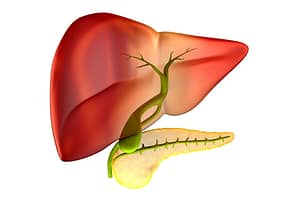Fentanyl is a synthetic opioid that is up to 100 times more potent than morphine. While it is primarily used for pain management in hospitals and other medical settings, it has also become a popular street drug due to its intense high. Unfortunately, fentanyl misuse has led to an alarming number of overdose deaths, making it a major public health concern.
In this article, we will explore the dangers of fentanyl and what you can do to protect yourself and your loved ones.
What is Fentanyl?
Fentanyl is a synthetic opioid that is similar in structure and effects to natural opioids like morphine and heroin. However, fentanyl is much more potent and can cause a range of serious side effects and dangers, even in small doses.
Fentanyl works by binding to opioid receptors in the brain and spinal cord, reducing the perception of pain and producing feelings of euphoria and relaxation. It is typically used medically to treat severe pain, such as pain caused by cancer, major surgery, or injury.
However, fentanyl is also highly addictive and can be deadly when misused. In fact, fentanyl is responsible for a significant proportion of opioid overdose deaths, both in the US and worldwide.
Therefore, it would be advised to consult with a professional opioid withdrawal treatment center as ANR Clinic to get insight when things get out of hand.
How is Fentanyl Misused?
Fentanyl can be misused in a variety of ways, including:
- Using fentanyl without a prescription: Many people obtain fentanyl illegally or from friends or family members who have a prescription.
- Using fentanyl for recreational purposes: Some people use fentanyl to get high, as it can produce powerful and intense euphoria.
- Combining fentanyl with other drugs: Fentanyl is often mixed with other drugs like heroin, cocaine, or benzodiazepines to enhance the effects.
Regardless of how it is misused, fentanyl is extremely dangerous and can lead to serious health problems and even death.
Fentanyl Timeline
Fentanyl can stay in your system for varying lengths of time. The amount of time that fentanyl is detectable depends on several factors such as age, weight, metabolism, dose, and frequency of use. Generally, fentanyl is detectable in urine, blood, saliva, and hair samples for different periods of time after the last use.
- Urine Test: Fentanyl can be detected in urine for up to 48 to 72 hours after the last use. However, in some cases, it can be detectable for up to 7 days or longer, especially in chronic users or those who use large doses.
- Blood Test: Fentanyl is detectable in blood for a shorter period compared to urine. It can be detected for up to 12 hours after the last use.
- Saliva Test: Fentanyl can be detected in saliva for up to 1 to 2 days after the last use.
- Hair Test: Fentanyl can be detected in hair samples for up to 90 days after the last use. This method of detection is more commonly used for forensic or legal purposes.
It’s important to note that the duration of fentanyl in your system can be influenced by other factors such as age, weight, metabolism, dose, and frequency of use. Fentanyl may stay in the system longer in chronic users or those who have a slower metabolism or those who use larger doses. It’s also important to note that other opioids like heroin or morphine may be metabolized into fentanyl and can cause a positive fentanyl test result.
If you’re taking fentanyl under the supervision of a healthcare professional, they will monitor your use and adjust your dosage as needed. If you’re struggling with fentanyl addiction, it’s important to seek professional help immediately. Professional addiction treatment centers offer evidence-based programs to help individuals overcome addiction, detox safely, and prevent relapse.
What are the Dangers of Fentanyl?
The dangers of fentanyl are significant, and even short-term use can lead to serious health problems. Some of the dangers of fentanyl include:
- Respiratory depression: Fentanyl can slow down breathing, which can lead to dangerously low oxygen levels and even death.
- Addiction and dependence: Fentanyl is highly addictive and can quickly lead to physical dependence, making it difficult to stop using.
- Overdose: Fentanyl is so potent that even small doses can lead to overdose, which can be deadly. Symptoms of a fentanyl overdose include slowed breathing, extreme drowsiness, confusion, and loss of consciousness.
- Other health problems: Fentanyl can cause a range of other health problems, including nausea, vomiting, constipation, itching, and muscle stiffness.
Fentanyl overdose deaths have been rising in recent years, and it is now one of the most common causes of drug overdose deaths in the US. According to the Centers for Disease Control and Prevention (CDC), there were over 36,000 overdose deaths involving synthetic opioids like fentanyl in 2019.
Who is at Risk for Fentanyl Misuse?
Anyone who uses fentanyl, either with a prescription or illegally, is at risk for misuse and overdose. However, certain factors may increase the risk of fentanyl misuse, including:
- History of substance abuse: People who have a history of substance abuse or addiction are at higher risk of misusing fentanyl.
- Mental health conditions: People with mental health conditions like depression, anxiety, or PTSD may be more likely to misuse fentanyl as a way of self-medicating.
- Social factors: People who live in areas with high rates of drug use, poverty, or unemployment may be more likely to misuse fentanyl.
How Can You Protect Yourself and Your Loved Ones from Fentanyl Misuse?
There are several steps you can take to protect yourself and your loved ones from fentanyl misuse and overdose:
- Follow your doctor’s instructions carefully: If you are using fentanyl for pain management, make sure to follow your doctor’s instructions carefully and only use the medication as prescribed.
- Dispose of the unused medication safely: If you have leftover fentanyl or other prescription opioids, dispose of them safely to prevent them from being misused. Many pharmacies and police stations offer drug take-back programs that allow you to safely dispose of unused medication.
- Be aware of the signs of fentanyl misuse: If you suspect that someone you know is misusing fentanyl, look for signs such as extreme drowsiness, confusion, slurred speech, or pinpoint pupils.
- Seek professional help: If you or someone you know is struggling with fentanyl addiction, seek professional help immediately. There are many effective treatments available to help you overcome addiction and regain control of your life.
- Carry naloxone: Naloxone is a medication that can reverse an opioid overdose and can be administered by anyone, even without medical training. Consider carrying naloxone if you or someone you know is at risk of opioid overdose.
Conclusion
Fentanyl is a powerful and deadly opioid that has become a major public health concern. Misuse of fentanyl can lead to serious health problems and even death, making it important to understand the dangers and take steps to protect yourself and your loved ones.
If you are using fentanyl for pain management, make sure to follow your doctor’s instructions carefully and dispose of any unused medication safely. If you or someone you know is struggling with fentanyl addiction, seek professional help immediately.
Remember, recovery from fentanyl addiction is possible, and there are many effective treatments available to help you overcome addiction and regain control of your life.







